News
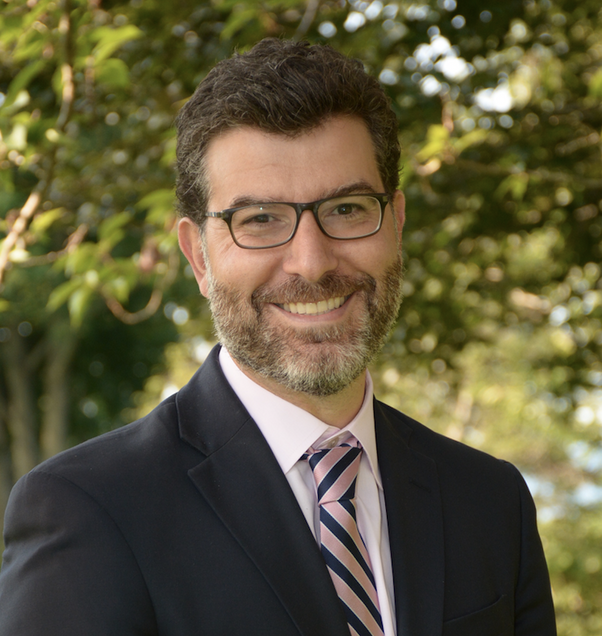
Letter to the BUA Community from Incoming Head of School Chris Kolovos
To the BUA Community,
I am delighted to be joining the Boston University Academy family and honored to partner with all of you as we chart the future of this extraordinary school.
My visits to campus during the search confirmed what I have known for a long time: BUA is a special place -- a function largely of the people who pass through its doors. I met students whose intellectual ability and curiosity is matched by their empathy and kindness; faculty members who stoke that curiosity while they take the time to get to know each young person as an individual; staff who work hard to create a warm, thriving, dynamic school culture; parents and alumni who embrace the mission and are invested in the future of BUA; and university leaders who are committed to a vision where BU and BUA continue to elevate one another.
BUA is wonderfully positioned to thrive in its second quarter century. Its values resonate far beyond Commonwealth Avenue: unapologetically high academic standards; celebration of intellectual curiosity; knowledge that a small caring community gives students what they need academically and emotionally; a love and respect for tradition; a drive to innovate in order to prepare students for a future we cannot anticipate; an understanding that a diverse, inclusive, equitable community makes us all better. Those priorities are near to my heart and are part of what makes the community so magnetic. BUA also, perhaps uniquely in the landscape of independent schools, benefits from a deep connection with a world-class research university. A small, caring high-school community with access to the college course offerings, thought leaders, facilities, and other resources BU has to offer -- that gives BUA several competitive advantages in the independent-school landscape. More importantly, it provides our students with the best of both worlds.
Thank you to the search committee, its chair, Norm Blanchard, and to Provost Morrison not only for the professionalism and care they showed throughout the process but also for their confidence. I am also grateful to the faculty, staff, parents, students, and alumni I have met for showing me the beauty of the community they love so much. My fiancée, Tracey, and I are both Boston natives and excited to be returning home, along with our dog Circe (she is from Mississippi, we think, but roots for Boston sports teams). We look forward to meeting you as we visit over the coming school year and when we formally join the BUA family in July 2020.
Warmly,

Chris Kolovos
Incoming Head of School

BUA Names Next Head of School
Boston University Provost and Chief Academic Officer Jean Morrison announced Monday the appointment of Christos Kolovos as Boston University Academy's next Head of School.
Chris Kolovos is Associate Head of School at Greens Farms Academy, an independent, pre-K-12 day school in Westport, CT, which has earned distinction for a rigorous, innovative, globally-minded curriculum that incorporates the surrounding ecosystems, the latest digital tools, and a student-centered approach to teaching and learning. In his six years at Greens Farms Academy, Mr. Kolovos has overseen the school’s academic program, from faculty hiring and professional development to curriculum and accreditation; directed major institutional efforts to strengthen diversity, equity, and inclusion; spearheaded the creation of a new schedule, service-learning program, and faculty evaluation system; and led the adoption of new courses focused on STEM, sustainability, global studies, and social justice. Mr. Kolovos previously served as Director of Global Education at Belmont Hill School in Belmont, MA, where he chaired the history department and designed programs around global citizenship. Mr. Kolovos is a native of Boston. He attended Roxbury Latin School and then Harvard College, where he graduated magna cum laude with a BA in history. He later earned a law degree at Harvard, while serving as coordinating editor of the Harvard Law Review.
Upon receiving the news of his appointment, Mr. Kolovos shared, “From the moment I stepped onto campus, I knew that BUA was a special place – students who are as kind as they are curious, talented teachers who know and nourish these exceptional young people, parents and alumni who are invested in the school’s success and passionate about the mission, a small, caring community with access to everything a world-class research university has to offer. I am honored to join the BUA family and to have the chance to tell the school’s remarkable story.”
Mr. Kolovos will assume his role of as Head of School in the summer of 2020.
Read the complete memo from Provost Morrison here.
Read the BU Today article about Chris Kolovos's appointment here.

BUA Commencement 2019
On Monday, May 20, the BUA Class of 2019 received their diplomas at Boston University Academy's 25th Commencement exercise, held at the BU Tsai Performance Center. Boston University Provost and Chief Academic Officer Dr. Jean Morrison spoke to graduating seniors about the privilege of their education and the special relationship between BUA and BU, and WBUR Morning Edition host Mr. Bob Oakes delivered a keynote address on the importance of civic participation.
The class of 37 graduates will matriculate at the following colleges and universities this fall:
Boston University (10)
Brandeis University (2)
Brown University (2)
Columbia University
The George Washington University
Harvard College
Johns Hopkins University
University of Massachusetts, Amherst
University of Michigan
New York University
Northeastern University (3)
Northwestern University
Reed College
University of Rochester
Smith College
Stanford University
Swarthmore College
University of Toronto
The University of Edinburgh
Tufts University (3)
Tulane University
Wellesley College
Professional video of the Commencement ceremony is available here. Photographs will be available shortly. Congratulations to the Class of 2019!
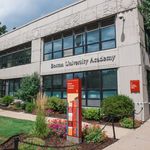
Update on BUA Head of School Search
Norm Blanchard, chair of the BUA Head of School Search Advisory Committee, sent an update on the head of school search to the BUA community on May 2, 2019.

Boston University Academy Students Win SISAL Awards
Boston University Academy students took home a bevy of awards in this year's Small Independent Schools Art League (SISAL) competition. Congratulations to all the winners and entrants! View the winning artwork here.
- Painting, 1st Place: Saoirse Killion '21, “Cole”
- Drawing, 1st Place: Saoirse Killion '21, “Aidan”
- Drawing, 3rd Place: Michelle Lisak '21, Untitled
- Mixed Media, 2nd Place: Sasha Tyutyunik '22 (photomontage)
- Mixed Media, 3rd Place: Irene Mitsiades '21, Untitled
- Digital (Graphic Design), 1st Place: Richard Fu '20, Tuck Design for ’18 Prom playing cards
- Digital (Graphic Design), Honorable Mention: Richard Fu '20, Art is Never…
- Digital (Art/Illustration), 3rd Place: Martin Brunswick '20, District 17
- Fiber Arts, 2nd Place: Irene Mitsiades '21, Starry Knit
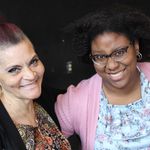
BUA Hosts Its First-Ever Grandparents Day
On April 22, 2019, BUA hosted two dozen grandparents and grand-friends as part of its first-ever Grandparents Day. Guests sat in on classes, heard from administrators about BUA's unique academics and institutional priorities, and enjoyed a buffet lunch with their grandchildren. It was a delight to foster intergenerational engagement for our students and their families. We look forward to making this an annual BUA tradition!
See a complete gallery of photos from Grandparents Day here.

BUA Head of School Search Advisory Committee Named
On April 11, 2019, Boston University Provost and Chief Academic Officer Jean Morrison announced the formation of a new BUA Head of School Search Advisory Committee. Read the full announcement here.

Aaron Gorenstein ’07
 Aaron Gorenstein ’07 graduated from the University of Rochester in 2011 with a BS/MS in Computer Science. In 2013, he earned a master’s in Computer Science from the University of Wisconsin, where he studied under Prof. Jin-Yi Cai, contributing to one paper in addition to serving as a teaching assistant and research assistant. Since graduate school, Aaron has worked as a software developer at Microsoft. He joined Microsoft’s C++ Compiler Team in the spring of 2014, and moved to Seattle, WA, where he met his now-wife Lenore, also an expat East-coaster. In 2017, Aaron and Lenore returned to the East coast, moving to Queens, NY. Aaron continues to work for the same team at Microsoft. In his free time, Aaron volunteers to help underrepresented minorities break into the tech industry by helping them with interview practice. He also enjoys reading books on history and ethics, as well as exploring creative hobbies like calligraphy.
Aaron Gorenstein ’07 graduated from the University of Rochester in 2011 with a BS/MS in Computer Science. In 2013, he earned a master’s in Computer Science from the University of Wisconsin, where he studied under Prof. Jin-Yi Cai, contributing to one paper in addition to serving as a teaching assistant and research assistant. Since graduate school, Aaron has worked as a software developer at Microsoft. He joined Microsoft’s C++ Compiler Team in the spring of 2014, and moved to Seattle, WA, where he met his now-wife Lenore, also an expat East-coaster. In 2017, Aaron and Lenore returned to the East coast, moving to Queens, NY. Aaron continues to work for the same team at Microsoft. In his free time, Aaron volunteers to help underrepresented minorities break into the tech industry by helping them with interview practice. He also enjoys reading books on history and ethics, as well as exploring creative hobbies like calligraphy.
Can you tell us about what drew you to Microsoft and what some of your primary responsibilities are?
Certainly the applications of computers captured a lot of my interest in school, but as time went on I found myself drawn to the more fundamental questions in computer science. That suggested I should stay in academia, and indeed by the time I got to grad school I was essentially studying mathematics (computational complexity theory). When I burned out of my PhD program at Wisconsin – applying my new Masters as a salve – I knew I wanted to transition to industry but hoped I could find a way to keep some toehold in the theoretical world. Among the big tech companies (lacking creativity, I applied only to those companies I had already heard of), Microsoft’s offer that had such a toehold: it was for a position on one of their compiler teams. Compilers are a wonderful branch of computer science that sit at the intersection of theory and practice, and I knew that was the job I wanted to take. For the past five years, I've been a member of the Microsoft Visual C++ compiler team.
The sub-team I'm on has a few goals. My focus is on the implementation of optimization algorithms, which draw on some deep technical analysis and present interesting theoretical questions. I find them quite satisfying. Among other optimizations, I've implemented a limited variation of partial-dead-code elimination, and a control-flow-graph optimization. Of course the day-to-day is not always as engaging: there are plenty of times where we fix bugs, or extend our testing infrastructure, and so on, but helping keep the business running is quite satisfying in its own right. I've also developed the reputation of being one of the more outgoing members of the broader C++ team – that’s rather horrifying – so for the past couple of years I've also had the responsibility of driving our customer-outreach efforts. This includes things like making sure teammates are writing blog posts advertising our current advancements to the product.
You took as many computer science courses as you could as an undergrad – how did this interest develop over your time at Boston University Academy? Were there certain courses or experiences that helped shape your interest in computer science?
I was always the sort of math-y, computer-y nerd even as a little kid, and had intermittent encounters with programming growing up. I don't recall what started it, but sophomore year I really committed to learning to program and I found it appealed to me. I think I wanted to make a video game. That never happened. What did happen was that summer I spent a few weeks at a sketchy learn-to-code sleepaway camp in Connecticut. Really after that it was off to the races: I was obsessed and wanted to learn as much about computers as possible.
That summer set me up to get a lot out of BUA and BU: I was able to take many computer science and related courses. Within BUA, the encouragement and excitement from so many people – Nick Dent, Gary Garber, Danielle Passno, Jim Davis, Dan Heller, Rich Horn, and many more – helped keep me motivated. I also found encouragement and friendship in the science and robotics teams. It's weird and intimidating, in some ways, to be a high school student in a college course, but this enormous support network made it easy. Lastly, I'd be remiss not to mention Hongwei Xi, my ludicrously patient senior thesis advisor and CS112 instructor. His lecture on quicksort is burned into my mind as the moment when I first realized that algorithms were the most fascinating thing in the world.
The availability of college courses allowed me to pursue my burgeoning interest in computer science, but it's fair to say the BUA community and connections enabled me to actually do it. By the time I got to Rochester, I had the experience and confidence to be able to hit the ground running and keep up the momentum from all the people pushing me earlier.
How has BUA’s integrated humanities curriculum influenced your academic studies and/or career even though you’ve pursued a STEM track?
On the surface, my STEM education and career seem largely divorced from the humanities. Scratching the surface, I can say that my ability to communicate – very much honed by BUA and my teachers there – has set me apart from almost all of my academic and professional peers. My career has advanced because of it.
Going a bit deeper, the experiences of grappling with fundamental questions at BUA likely oriented my college interests away from the more immediate aspects of computer science and towards the root questions raised by automated reasoning. Computational complexity is, from one viewpoint, the study of the limits of what we can compute, which does not sound altogether different from the limits of what we can understand. I've found the questions and hints that arose from this course of study fascinating, and something that enriched my understanding of and participation in the world. I can't pretend that I spend my free time in deep meditation or something, but I am immensely glad to be able to articulate my professional and academic interests in human terms instead of as some interesting, but disconnected, riddles.
That said, it is in my life outside of the classroom and office that I feel most grateful for the humanities. When I make the mistake of looking up from my computer screen I see a world with a lot of hard questions. The tools, vocabulary, and perspectives to even begin to understand the world and its challenges are not Google-Bing-able. I have to confront my own decisions about how to live life, and how to justify those decisions. Without getting into it, I'll say that Seneca's enjoying quite a lot of popularity in the tech world. Within my social circles, there are rare but valued times when we’ll discuss important things, and I need the tools to both understand my friends’ perspective and articulate mine effectively. Considering national and international events, I would feel entirely adrift but for the grounding in history and some nascent understanding of how other nations view the world. In these and so many other situations that matter, I've found it is only my foundation in the humanities that helps me here, rather than my expertise in C++ or Turing Machines. For me, that foundation was laid at BUA.
So much more than books, it was the teachers that made it all possible. Few people, I’ve found, have the patience to really engage on these meaningful problems with others – and our teachers do so with high school students.
If you could turn back the clock and give your high school self one piece of advice, what would it be?
At BUA, I participated in a lot of “lively” debates among classmates. I think that I would have benefited more from those had I focused more understanding the other person’s perspective and less on trying to convince them of my own. The more I’ve been able to listen to others, the more valuable my experience has been.
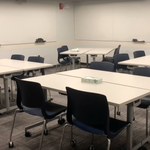
Classroom Renovation Initiative Update
Over the 2018-2019 winter intercession, BUA completed Phase One of the Classroom Renovation Initiative to upgrade classrooms and student spaces. During the break, two classrooms (Rooms 209 and 210) were completely overhauled, and new smartboards, bookshelves, tables, and chairs were been installed. This short video shows the renovations and illustrates the impact of this initiative on our teaching and learning:
Thank you to everyone who made a gift to the Classroom Renovation Initiative! We look forward to the next phase of the renovations this summer.
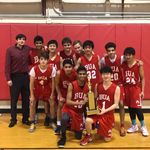
Boys’ Varsity Basketball Clinches Championship Title
Vibhav Kumar ’20 and Nicket Mauskar ’20 provide a recap of the Boys’ Varsity basketball team’s championship season:
As fall ended, winter began, along with a new basketball season. The Boys’ Varsity basketball captain and many of our star players graduated back in May, so this was widely seen as a rebuilding year for the team. Our players, mostly sophomores and juniors, challenged ourselves to not be daunted by the obstacles we would face during the season.
Despite our initial doubts, everyone believed that we were capable of achieving something great. We started the season with a win against a tough team. Over the course of the fall and winter, however, we lost many tough games in dramatic fashion. The team grew closer as the season progressed and at the end of the regular season we were ready to make a deep playoff push.
Heading into the playoffs as the number #3 seed, we embraced the opportunity to face off once again with a team we had lost to twice (both times by a difference of just two points). The dynamic from the very start of the playoffs carried through all the games, and this helped us play at a quicker tempo and higher energy level than ever before. Not only did we want to rebound from our previous losses, but we also wanted have one more opportunity to play in a championship game – the first one for the BUA Boys’ Varsity basketball team in three years.
As tip-off for the championship game approached, the excitement and intensity emanating from the fans of both teams in Sargent Gym rose to levels never seen before. It was a tough battle from the start, as the lead changed multiple times before the first half ended. Down by five at halftime, we knew the game was far from over: both teams were playing their hearts out. In the second half, as the clocked ticked ever closer to zero, we found ourselves down five points with just ten seconds left.
A miracle sequence then unfolded: a clutch three followed by a buzzer-beater layup tied the game as the clock hit zero. In overtime, BUA’s roaring fans pushed us toward a strong finish despite our overwhelming fatigue. When the game ended, BUA Boys’ basketball had won its first championship in more than a decade, 73-68: we couldn’t believe it. The atmosphere in the gym that night is something we will remember for the rest of our lives.
Our team would like to give a special shout-out to Aaron Revoir ’19 for four years of hard work and for bringing the BUA basketball program to a different level. We are so happy his high school career ended on a high note.